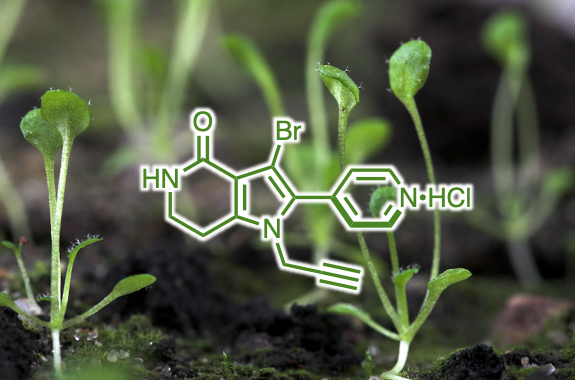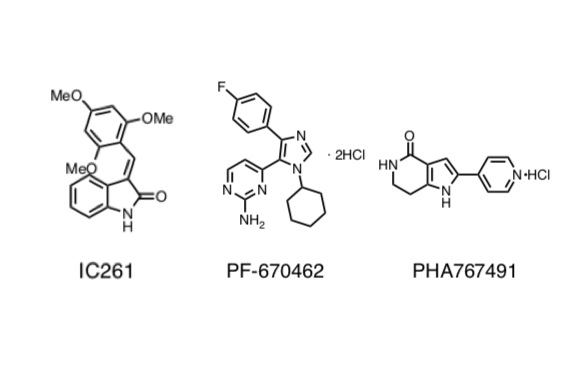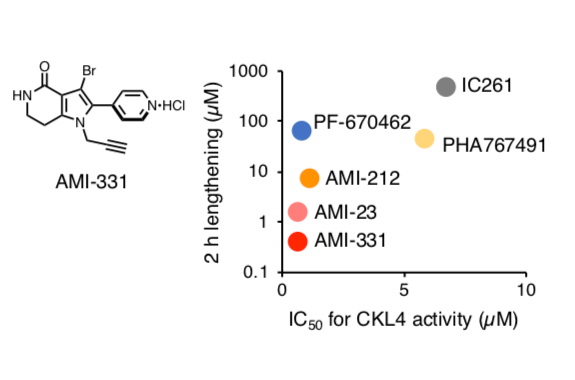Generation of strong casein kinase 1 inhibitor of Arabidopsis thaliana
Today:1views / Total:1,800views



Saito, A. N.; Matsuo, H.; Kuwata, K.; Ono, A.: Kinoshita, T.; Yamaguchi, J.; Nakamichi, N.
bioRxiv 2019
DOI 10.1101/642884
Casein kinase 1 (CK1) is an evolutionarily conserved protein kinase among eukaryotes. Studies on yeast, fungi, and animals have revealed that CK1 plays roles in divergent biological processes. By contrast, the collective knowledge regarding the biological roles of plant CK1 lags was behind those of animal CK1. One of reasons for this is that plants have more multiple genes encoding CK1 than animals. To accelerate the research for plant CK1, a strong CK1 inhibitor that efficiently inhibits multiple members of CK1 proteins in vivo (in planta) is required. Here, we report a novel strong CK1 inhibitor of Arabidopsis (AMI-331). Using a circadian period-lengthening activity as estimation of the CK1 inhibitor effect in vivo, we performed a structure-activity relationship (SAR) study of PHA767491 (1,5,6,7-tetrahydro-2-(4-pyridinyl)-4H-pyrrolo[3,2-c]pyridin-4-one hydrochloride), a potent CK1 inhibitor of Arabidopsis, and found that PHA767491 analogues bearing a propargyl group at the pyrrole nitrogen atom (AMI-212) or a bromine atom at the pyrrole C3 position (AMI-23) enhance the period-lengthening activity. The period lengthening activity of a hybrid molecule of AMI-212 and AMI-23 (AMI-331) is about 100-fold stronger than that of PHA767491. An in vitro assay indicated a strong inhibitory activity of CK1 kinase by AMI-331. Also, affinity proteomics using an AMI-331 probe showed that targets of AMI-331 are mostly CK1 proteins. As such, AMI-331 is a strong potent CK1 inhibitor that shows promise in the research of CK1 in plants.
The AMI -331 thus developed is commercialized by Tokyo Kasei Kogyo (TCI) Co., Ltd. and marketed as a new plant CK1 inhibitor (AMI -331 Hydrochloride – Product Number A 3352).


 日本語
日本語 中文
中文











